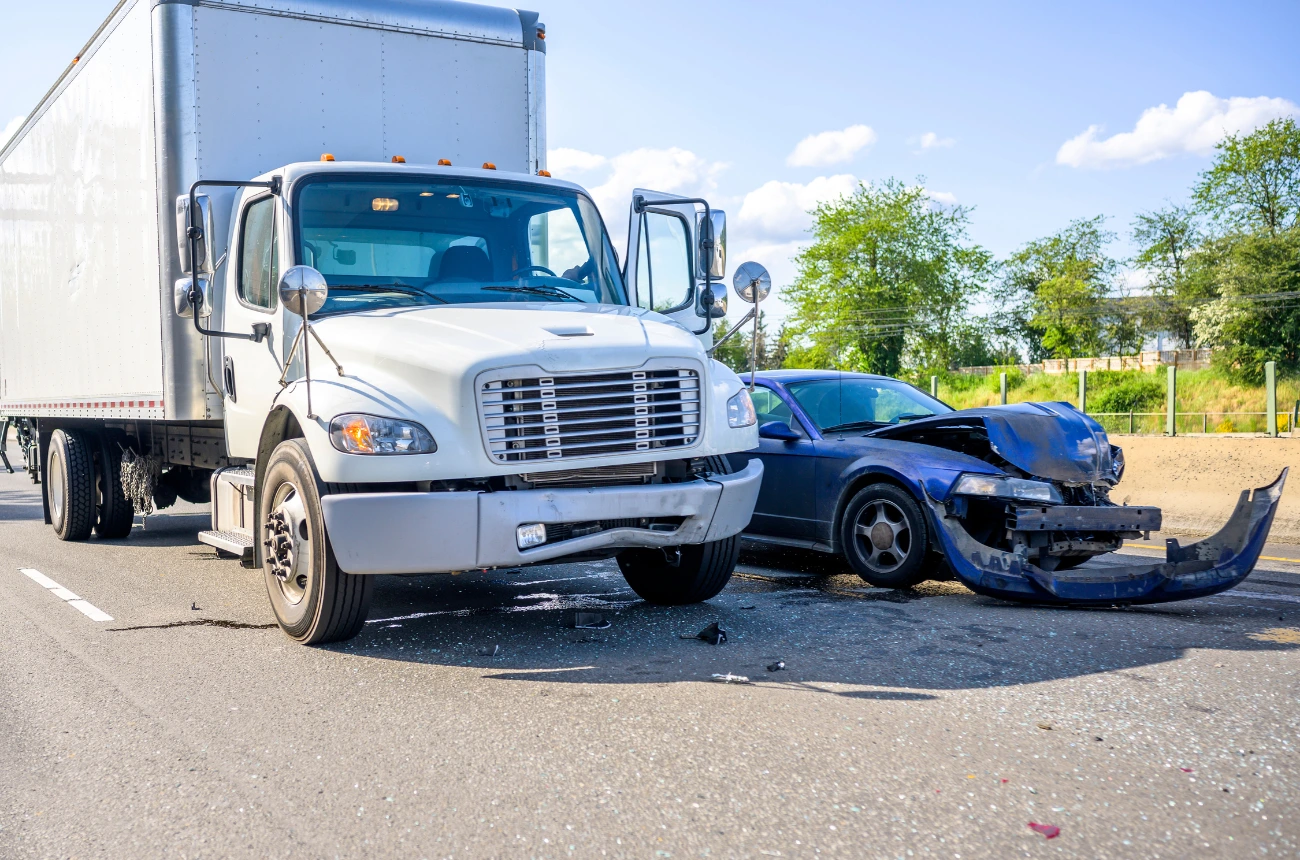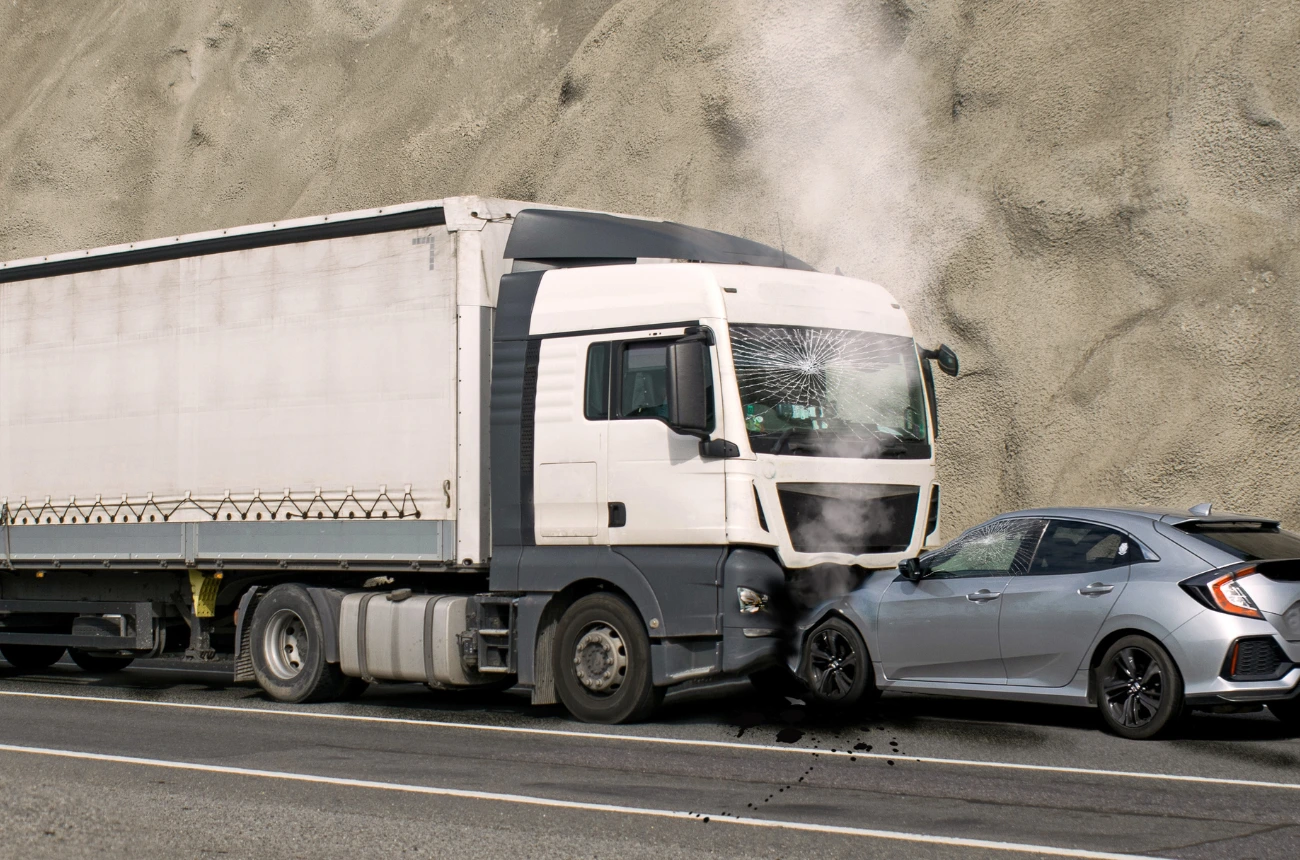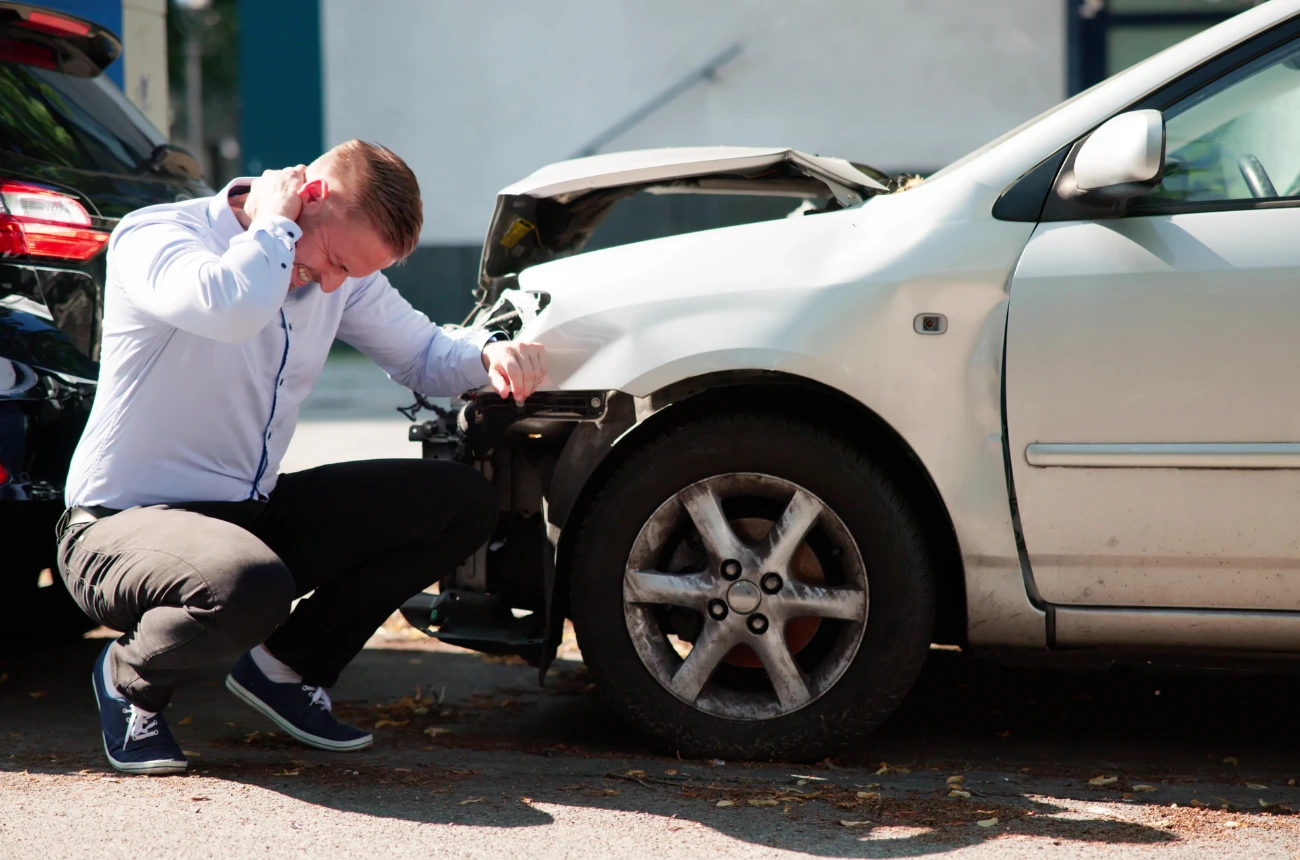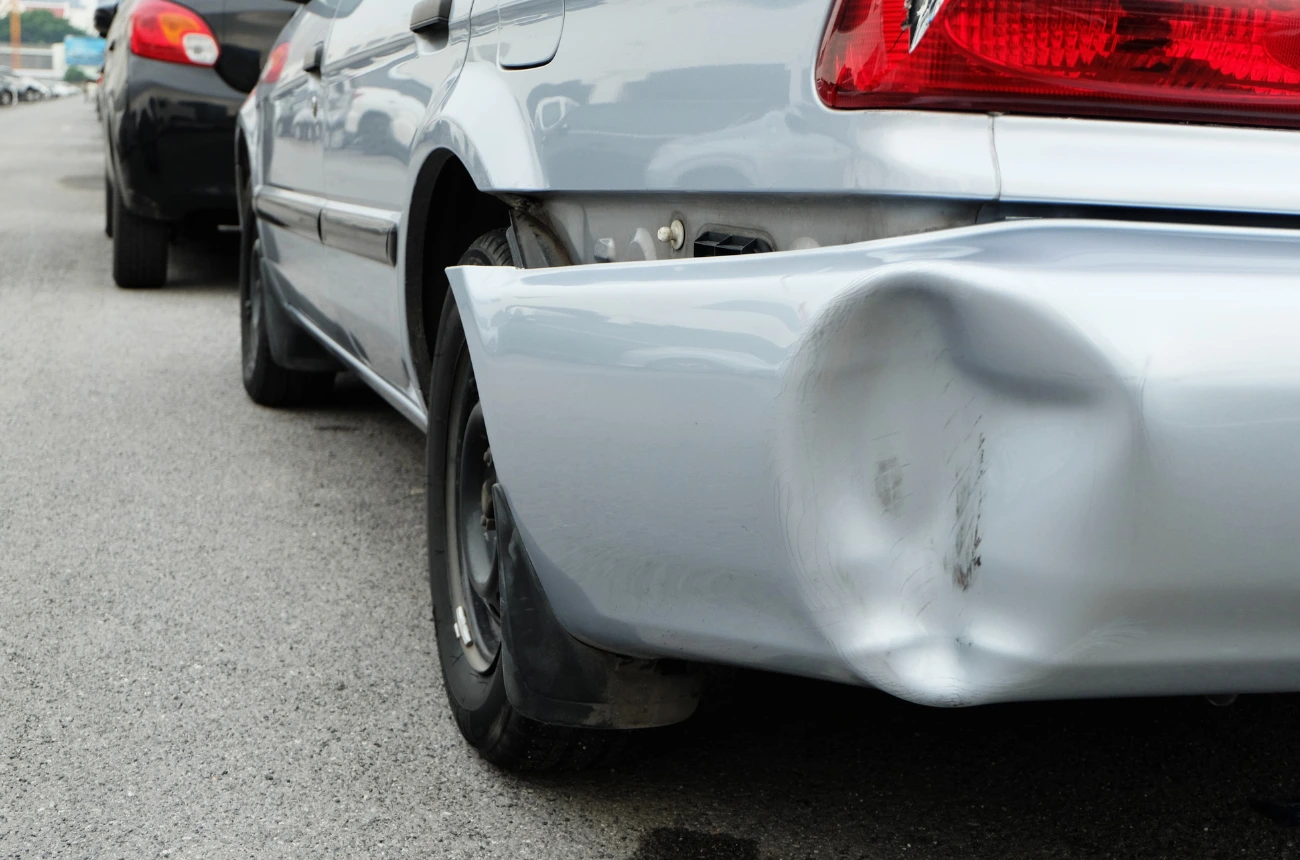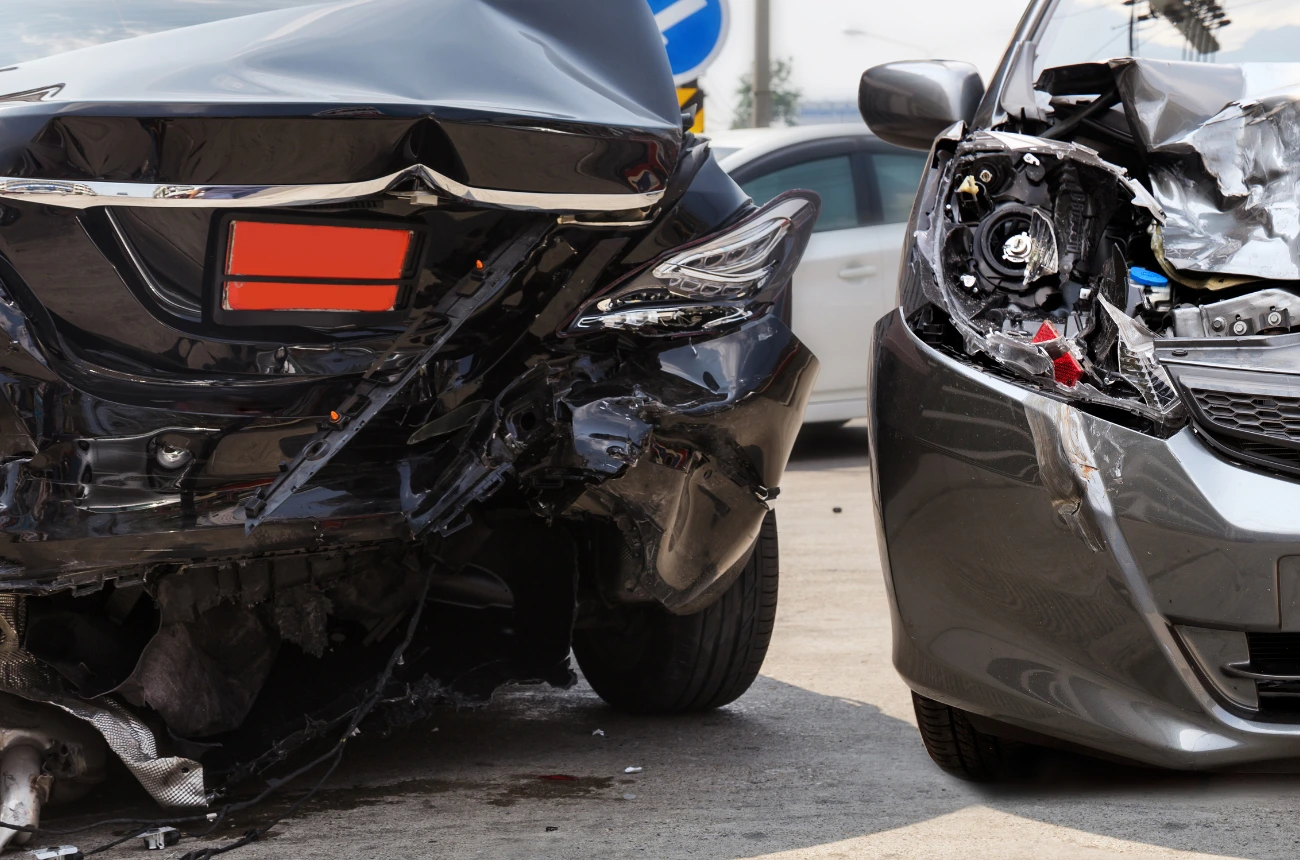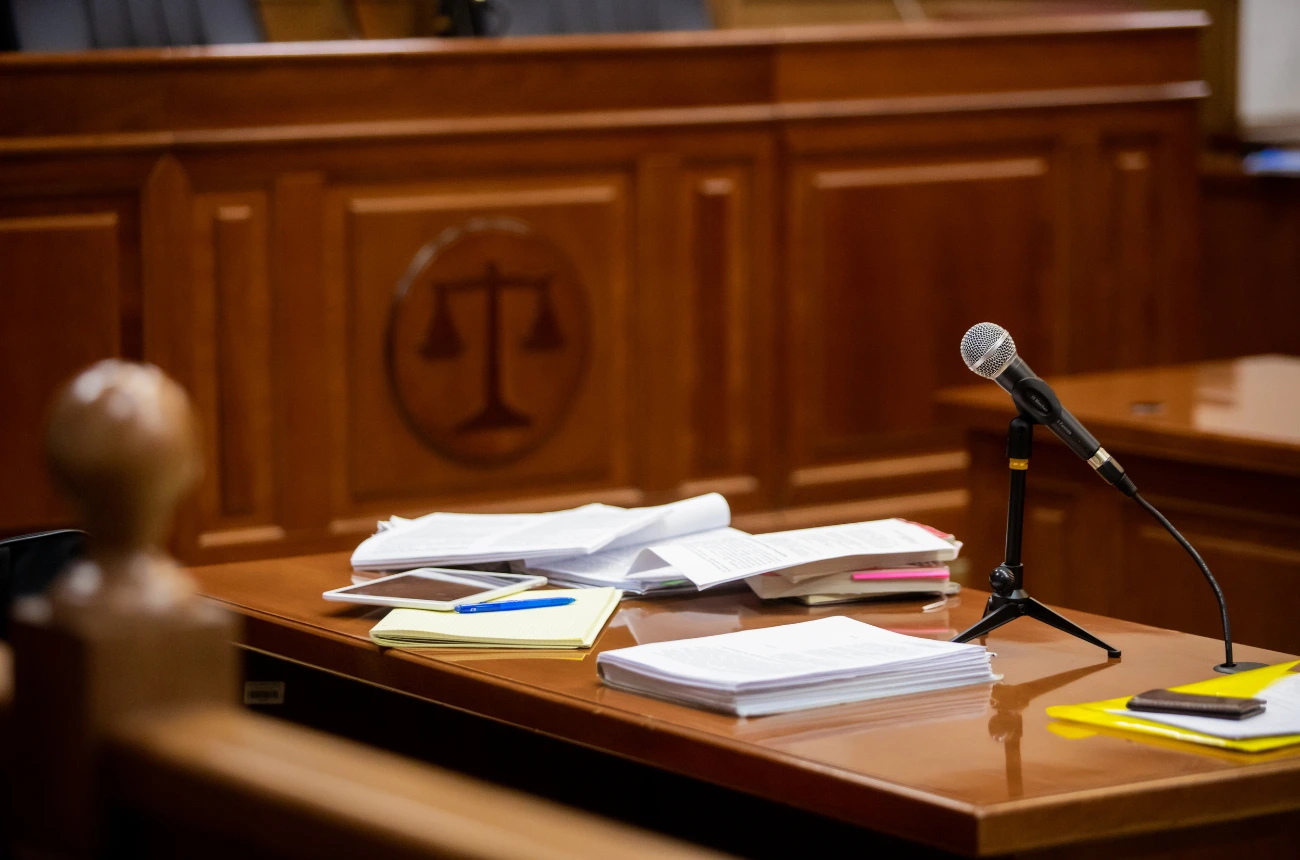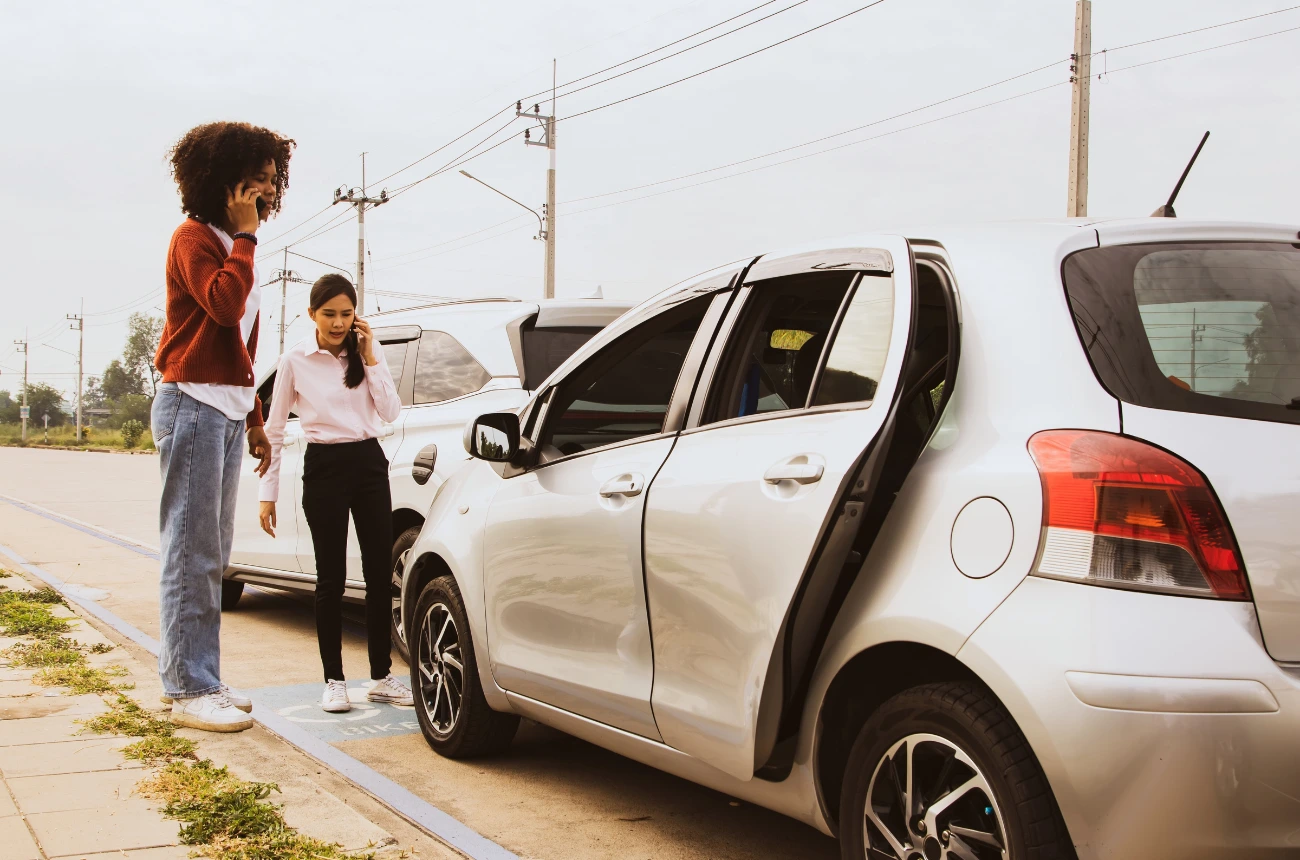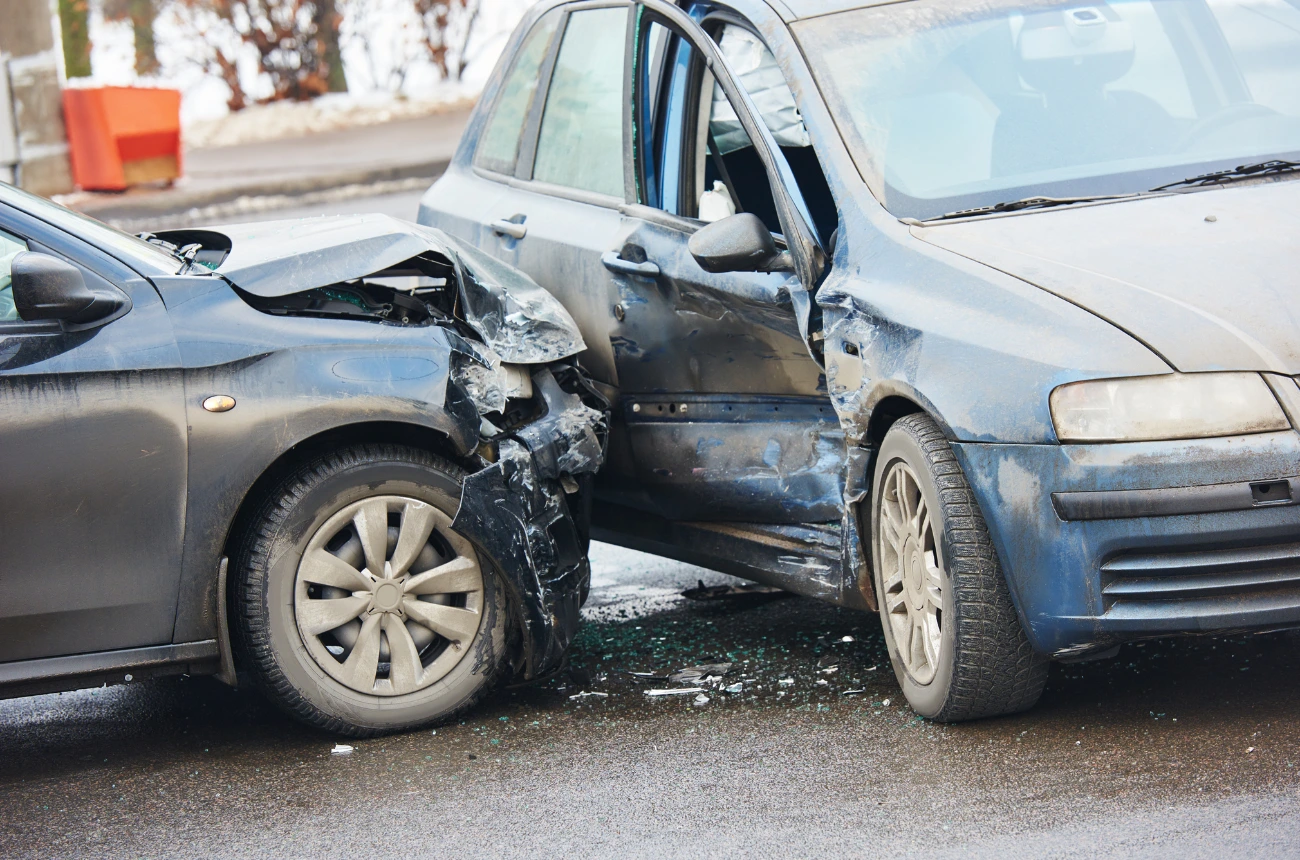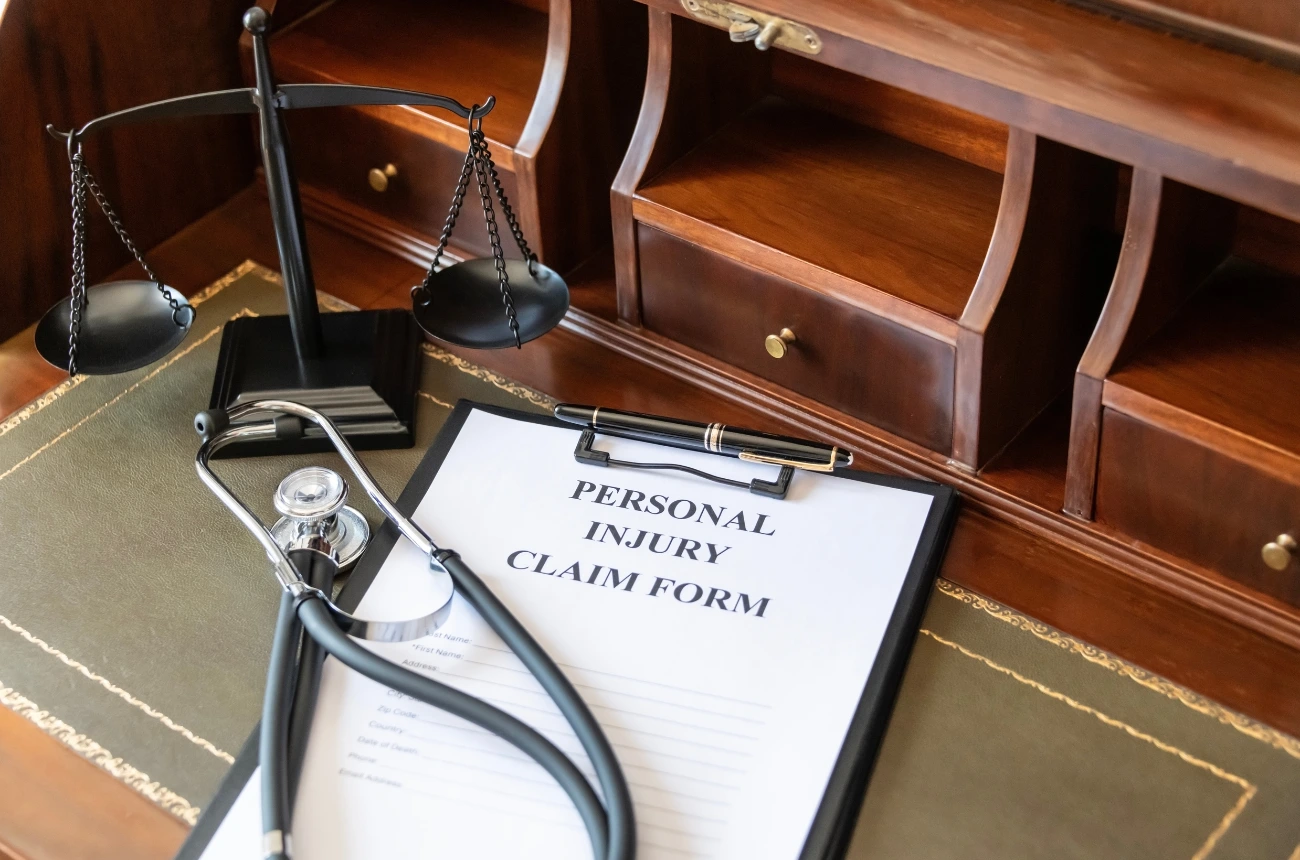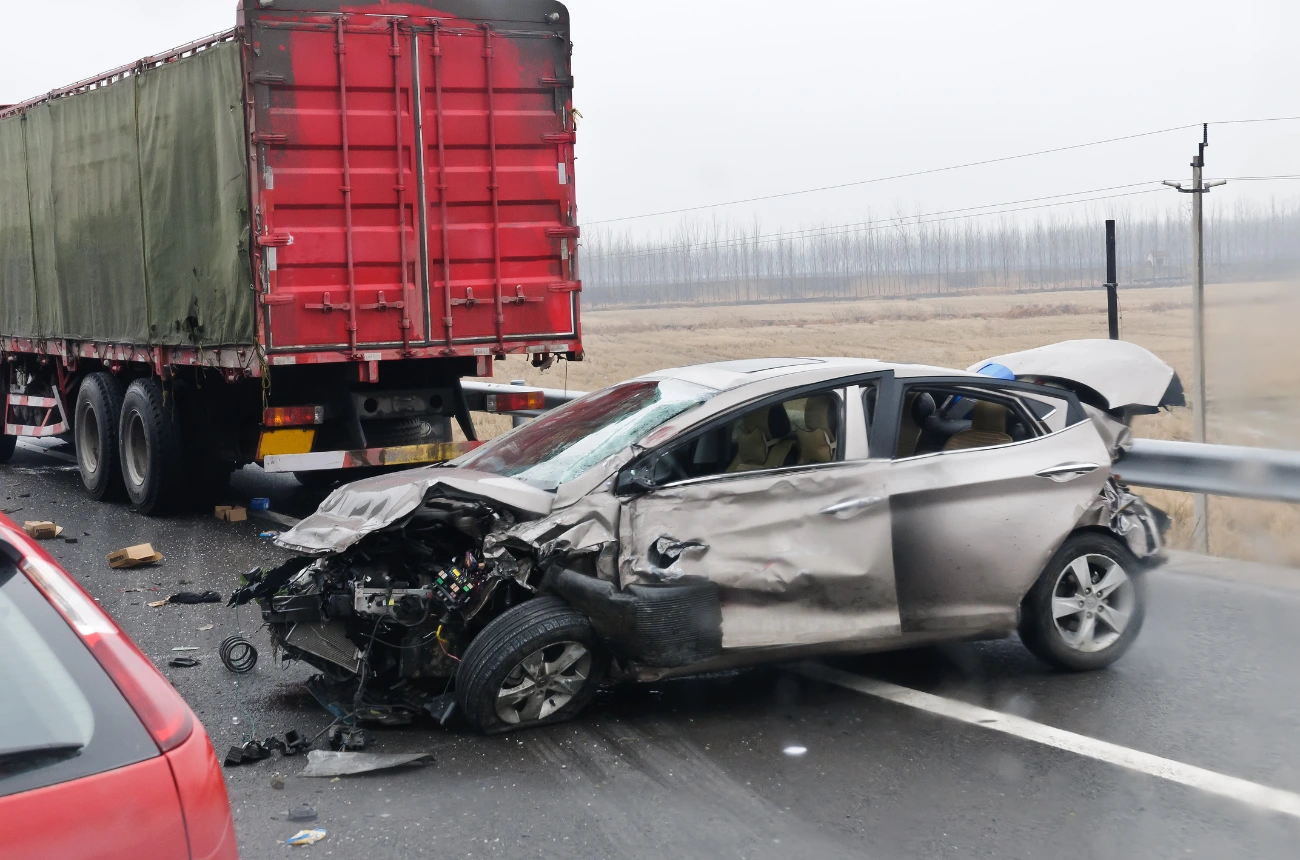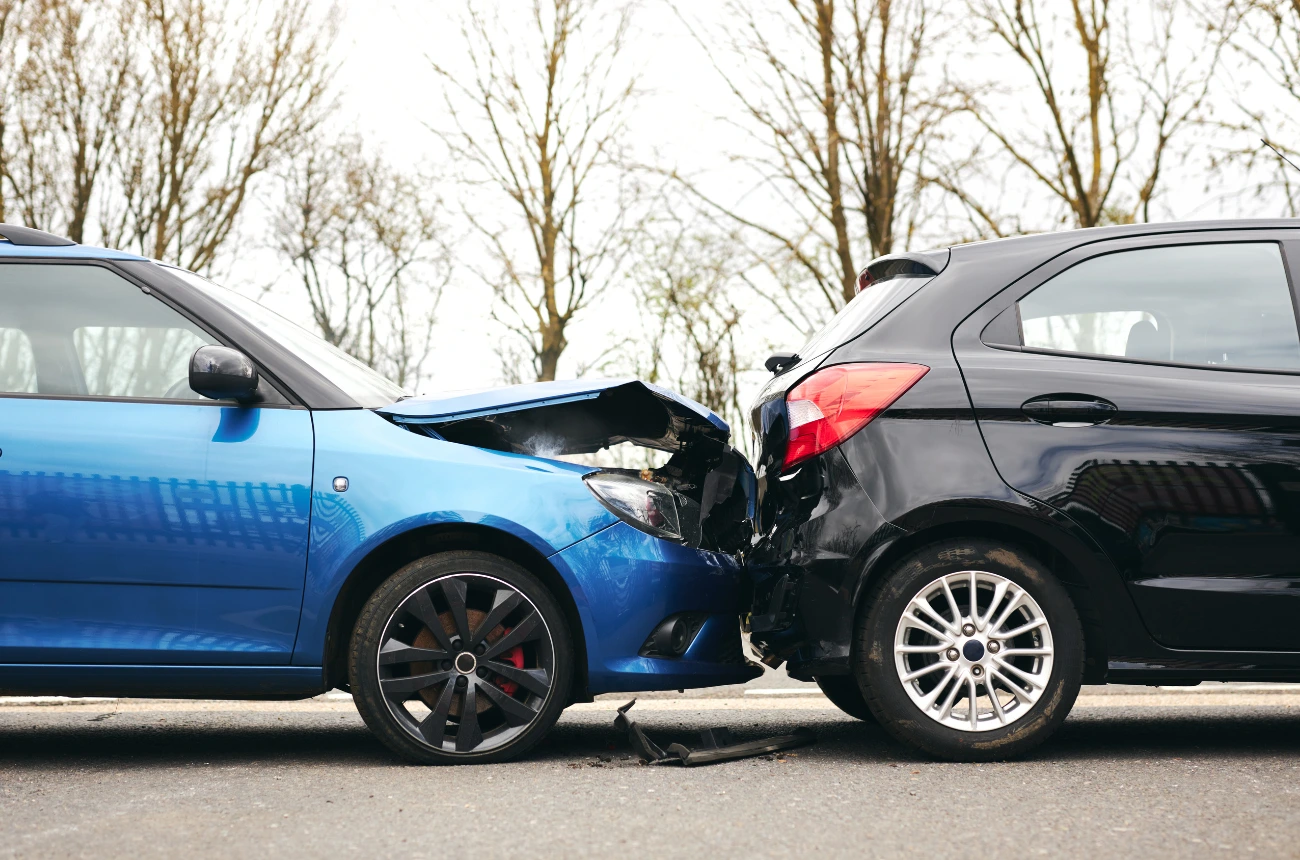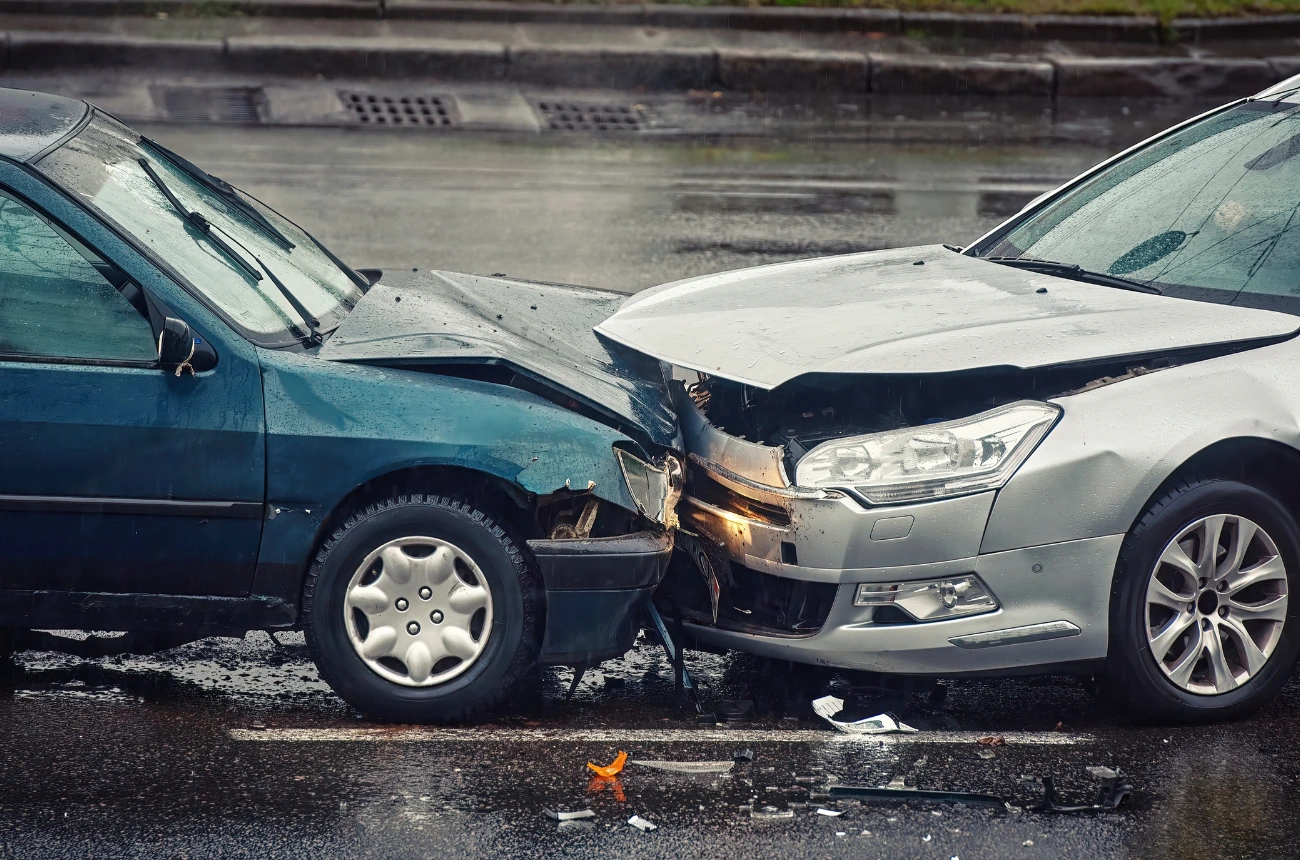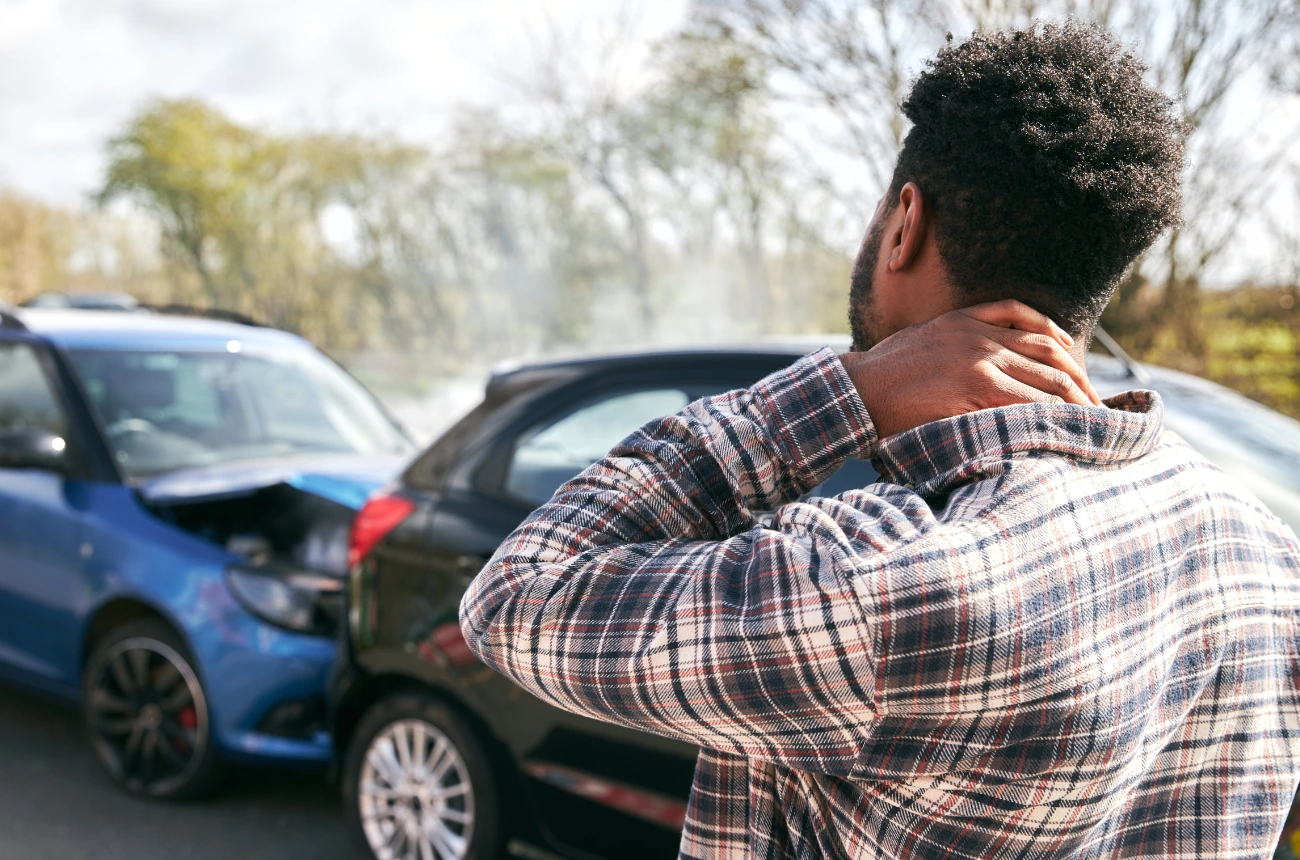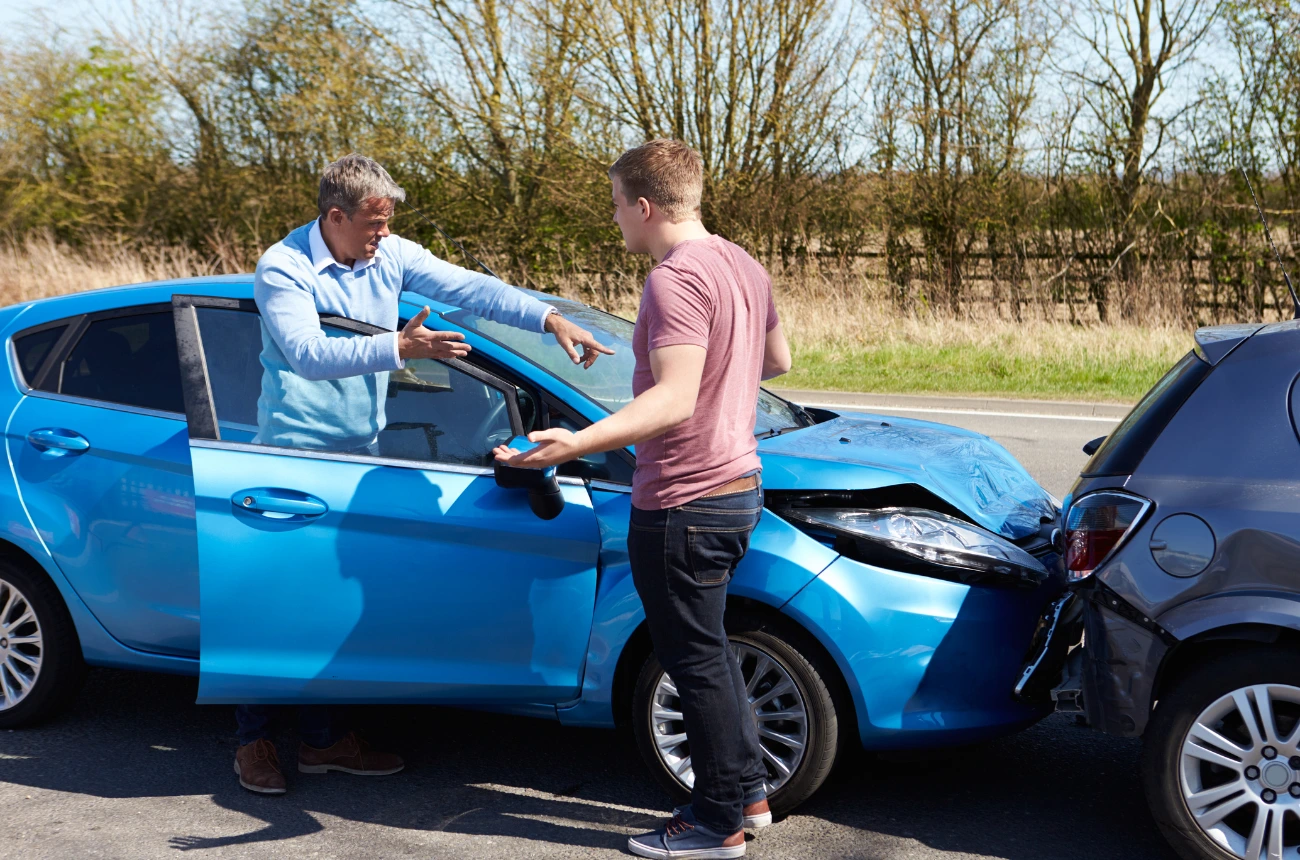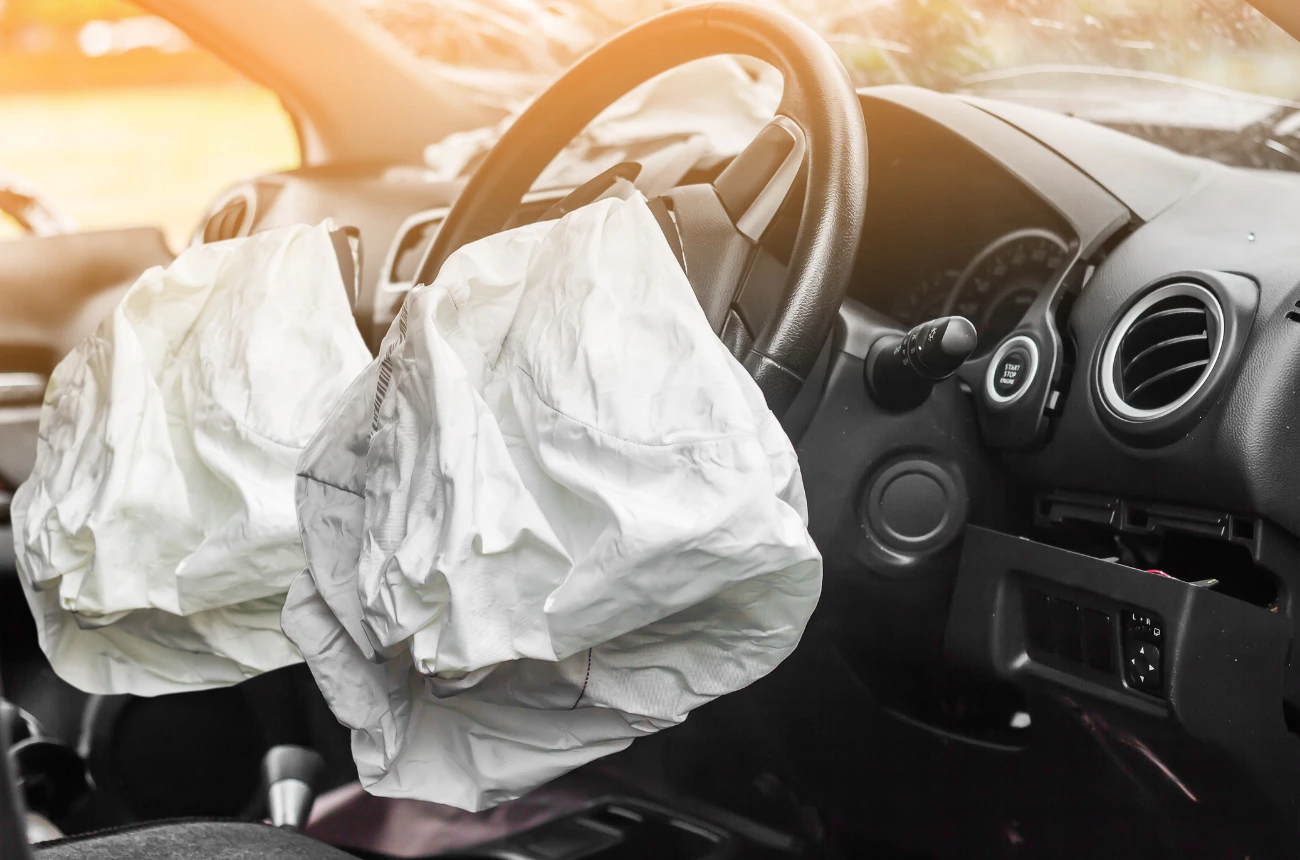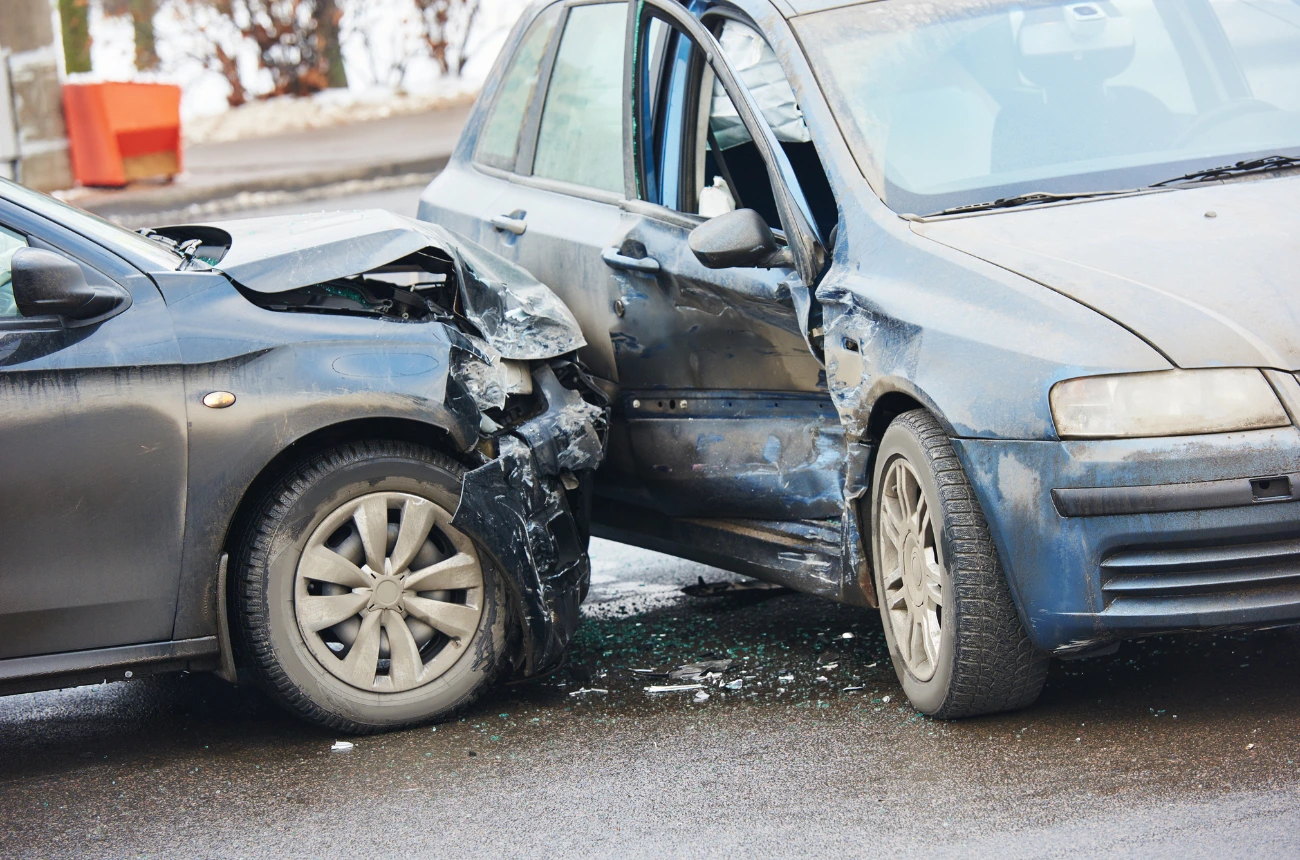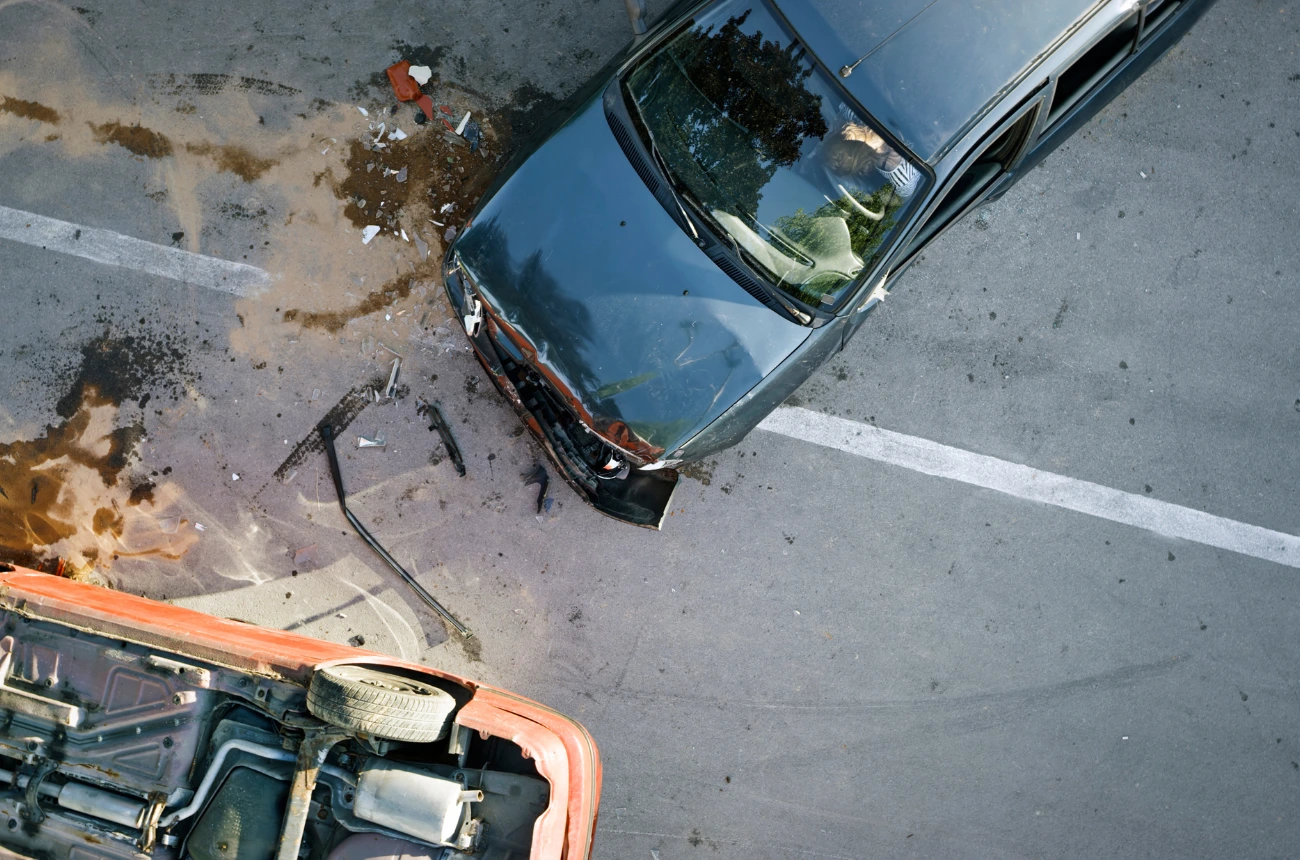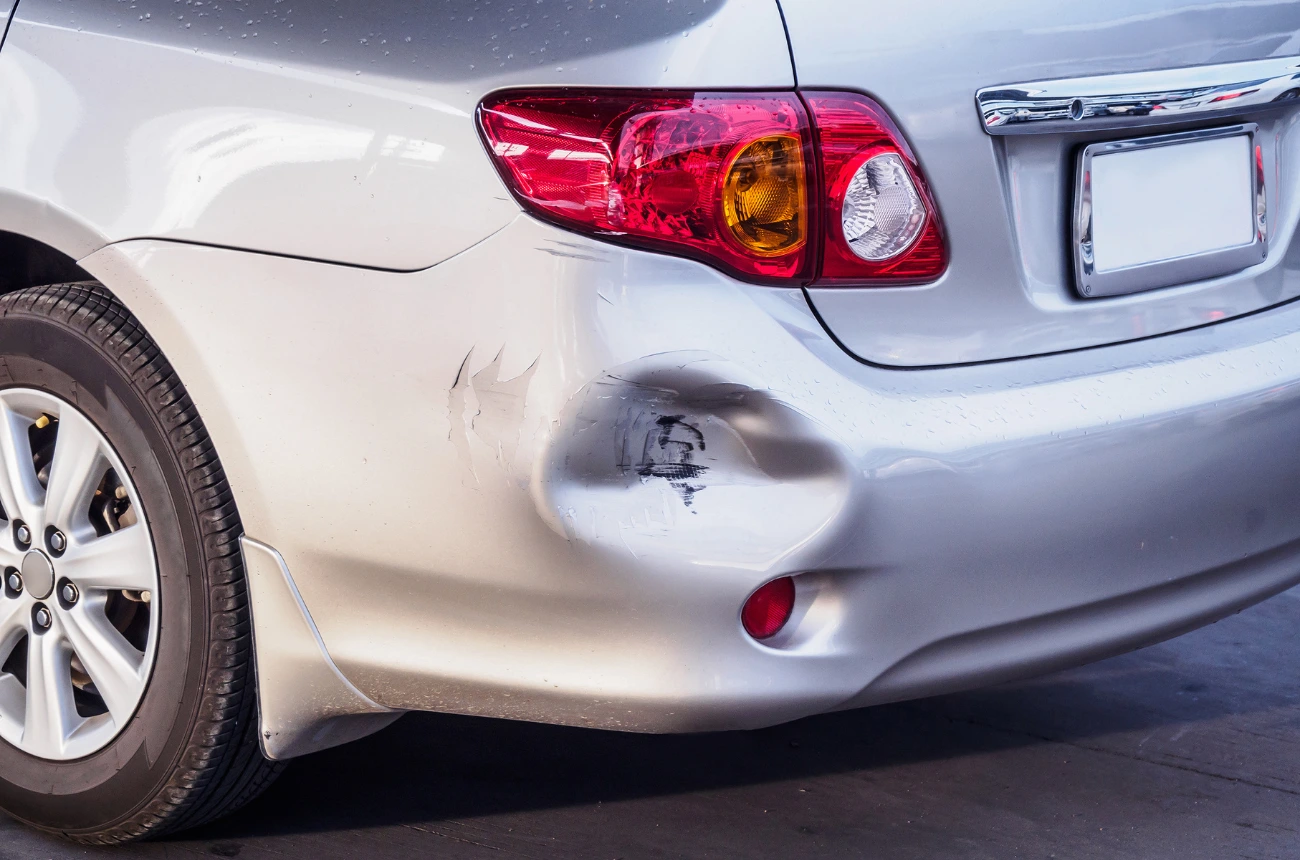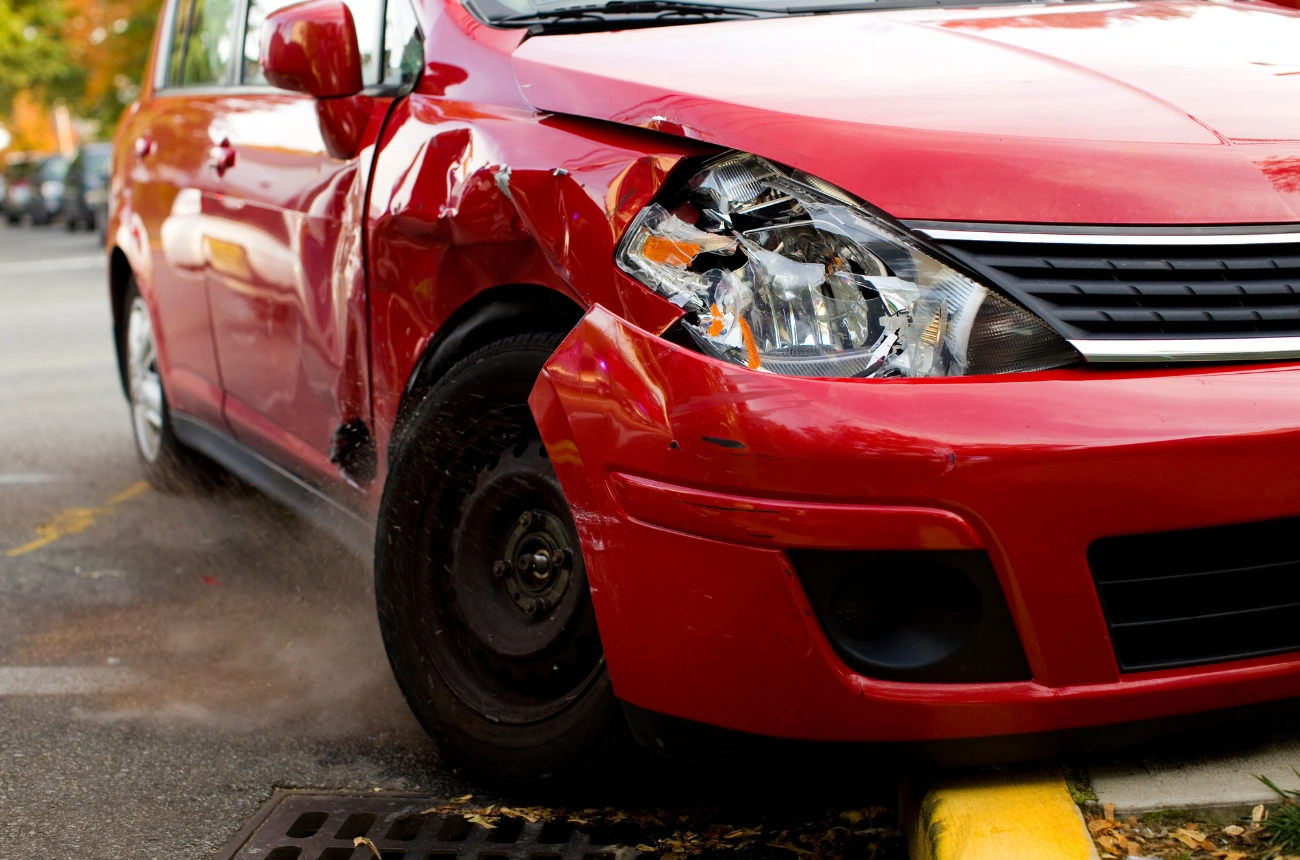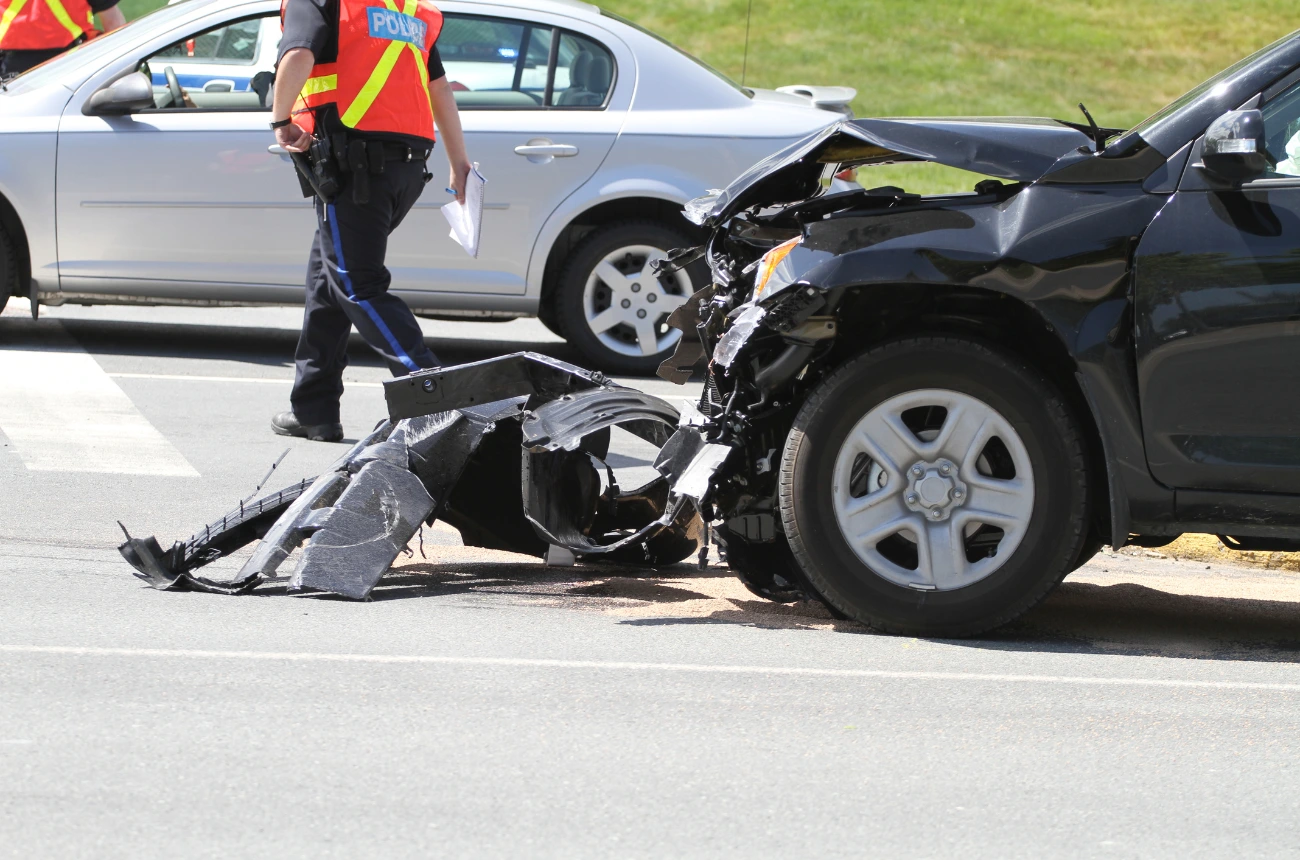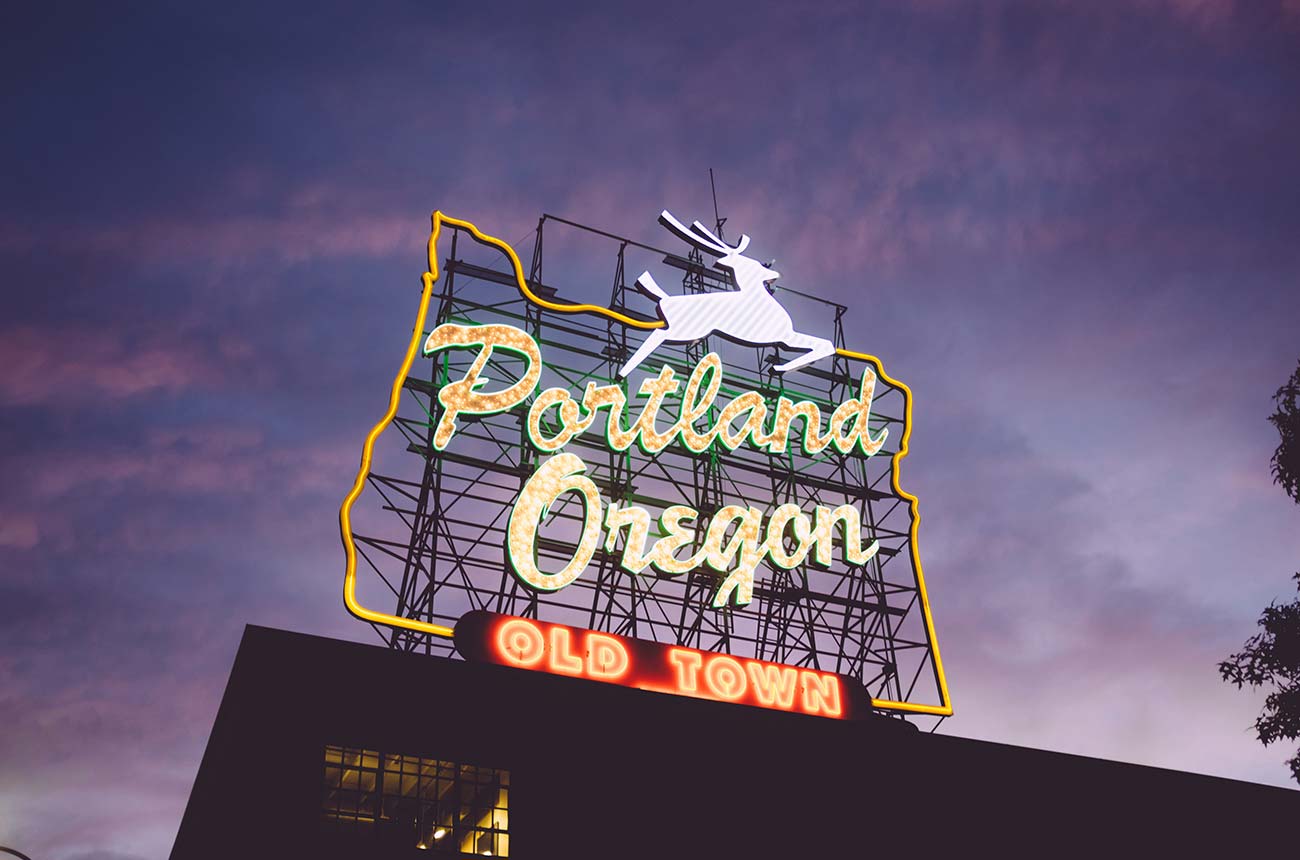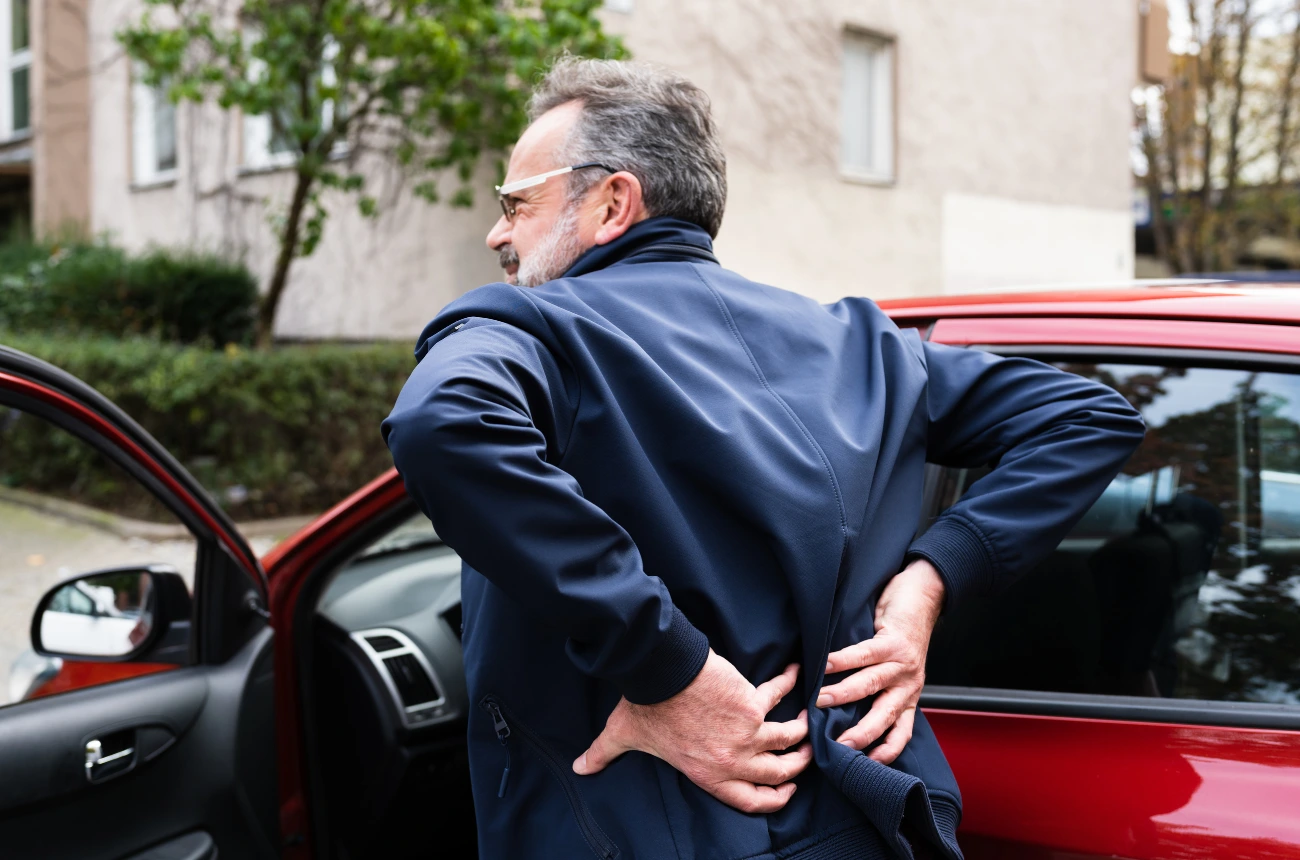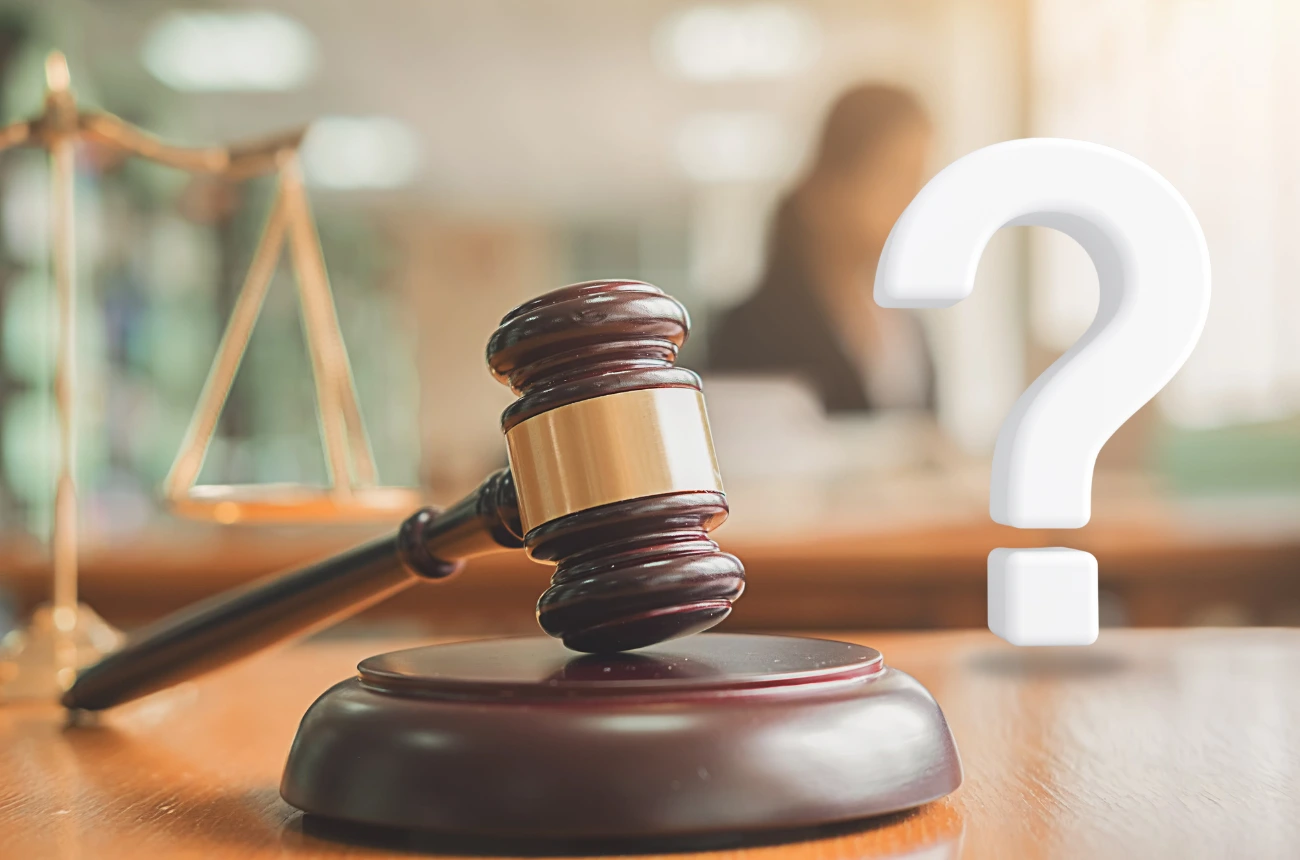Right after a truck accident, it’s important to stay calm and take the right steps to protect yourself — both physically and legally.
From getting medical help to gathering evidence, what you do next can impact your ability to get compensated for your injuries and losses.
But truck accidents are far more complex than regular fender benders — they often cause severe injuries, involve multiple parties, and come with higher insurance stakes.
That’s why you need an experienced truck accident lawyer who knows how to shut down the insurance company’s games and fight for what’s yours — like the team at No Bull Law.
If you’re ready to take the first step, set up a free consultation today.
Now, let’s break it all down — here’s exactly what to do after a truck accident in Texas.
Use this simple, step-by-step guide to navigate the aftermath of a truck accident in Texas:
1. Document the Accident Scene
Right after the accident, gather as much evidence as possible to protect your insurance claim.
Take clear photos of the truck’s license plate, company name, and DOT number, along with other evidence like cargo spills, skid marks, and road conditions. Be sure to capture all visible damage to your vehicle, injuries, and surrounding traffic signs.
Remember to exchange information with the truck driver — take photos of the driver, their license, and anyone else accompanying them in the truck. Note if other company employees arrive at the scene. If they do, be sure to get their name, position, and contact details as well.
If there are witnesses, get their statements and contact information. The more evidence you collect now, the stronger your case will be.
2. Inform the Police
Next, you’ll need to report the 18-wheeler accident to the police. A police report creates an official record that can strengthen your insurance claim or legal case.
Contact the local law enforcement at the accident scene and provide clear, factual details about the crash and the truck driver’s information. But avoid speculating or admitting fault, as this can impact your case later.
Note: In Texas, you’re legally required to report accidents involving injuries, fatalities, or property damage exceeding $1,000.
3. Get Medical Attention
Truck accidents often result in severe injuries due to the sheer size and force of impact. Even at low speeds, collisions can cause concussions, brain injury, internal bleeding, or back and neck injuries — some of which may not show symptoms immediately.
So, seek medical attention as soon as possible, even if you feel fine or think that any present pain will go away.
Prompt medical care protects your health and strengthens your insurance claim. Waiting too long makes it harder to prove your injuries were caused by the accident.
To support your claim, keep thorough records of all medical visits, including diagnoses, treatments, prescriptions, discharge paperwork, and related expenses.
4. Work with a Truck Accident Lawyer
If you haven’t already done so, contact a personal injury lawyer as soon after the accident as you can.
Truck accidents involve complex liability issues, from trucking company policies to federal regulations, which a lawyer will have experience navigating to get you the best possible outcome.
In fact, studies show that accident victims with legal representation receive three times more compensation than those who attempt to handle claims alone.
To give just a few examples, a lawyer can help you discover and preserve critical evidence, negotiate with insurers on your behalf, and ensure you don’t miss any critical deadlines (which can harm your case).
We’ll remind you that booking a consultation is free and has no obligations.
5. Get a Property Damage Assessment
You should get your vehicle’s damage thoroughly assessed after an auto accident so you don’t get stuck paying for repairs that should be covered by insurance.
Sometimes, the damage isn’t obvious right away, so it’s a good idea to take your car to a trusted mechanic or body shop for a proper inspection.
Make sure to keep all repair estimates and receipts; they’ll come in handy for your claim.
If you can, get a couple of estimates to compare prices. And don’t forget to snap some clear photos of the damage from different angles to help back up your case.
6. Collect Evidence of the Accident
Your lawyer will help you organize any photographic evidence, witness statements and contact information you collected at the scene. Remember, this evidence can make a big difference in the strength of your claim.
Your personal injury lawyer can also collect additional evidence to strengthen your case, such as traffic camera footage, black box data, and trucking logs.
These may reveal driver fatigue, maintenance violations or whether the driver was speeding.
7. Notify Your Insurance Provider
Even if you weren’t at fault, notify your insurance company as soon as possible.
If you delay notifying your insurer, you could lose coverage benefits, such as medical payments for immediate treatment or uninsured/underinsured motorist coverage, if included in your policy. This is especially important if the at-fault driver is an independent truck operator or lacks proper commercial insurance.
Your truck accident lawyer can handle communication with your insurer so they don’t misinterpret your words or downplay your claim. They’ll also review your policy, identify available coverage, and push back if the insurer tries to undervalue or deny your benefits.
8. Continue Medical Treatment Without Gaps
Following through with all medical treatments is crucial for both your recovery and your truck accident case.
Skipping appointments or delaying treatment can give insurance companies a reason to argue your injuries aren’t serious or weren’t caused by the accident.
9. File a Claim
Filing a truck accident claim involves detailed paperwork and strict deadlines.
While Texas law gives you two years to file a personal injury claim, you should file as soon as possible.
Delays can weaken your case, lead to lost evidence, and reduce your chances of securing full compensation. Additionally, missing the deadline could mean losing your right to compensation altogether.
Your truck accident lawyer will organize all necessary documents, including medical records, the police report, accident evidence, and insurance details. They will complete and file your claim perfectly, preventing delays that could weaken your truck accident case.
10. Limit Communication
After a truck crash, be mindful of what you say and who you speak to. Insurance companies and opposing lawyers look for any reason to reduce or deny your claim.
Here’s how every accident victim can protect themselves:
- Avoid social media posts: Even a simple update like “I’m okay” can be used against you to argue your injuries aren’t serious. Photos of you engaging in activities can also be misinterpreted to undermine your case.
- Don’t communicate with the trucking company’s insurer: Their goal is to settle for as little as possible. Anything you say can be taken out of context and used against you. Only let your lawyer communicate with them to protect your claim.
- Never provide a recorded statement: Insurance adjusters may ask for a statement, but they can twist your words to shift blame or downplay your injuries. If you’re in a situation where you have to speak, limit your responses to the questions asked, and avoid overexplaining.
Read about other mistakes you should avoid in Texas personal injury claims.
11. Negotiate a Settlement
Truck accident claims are often high-value, which means insurance companies will try to lowball your settlement to minimize their payout. However, most commercial truck drivers are held to a higher legal standard than a normal driver. This higher duty of care, combined with potentially severe injuries when accidents happen, often justifies a larger settlement.
Your truck accident lawyer will calculate the full extent of your damages, including medical bills, lost wages, rehabilitation costs, and pain and suffering, to demand fair compensation.
Because truck accidents involve trucking companies, corporate insurers, and federal regulations, negotiations can be complex.
If the trucking company or its insurer tries to undervalue your claim (which they will), your personal injury lawyer can push back and fight for fair compensation, using black box data, accident reconstruction reports, and trucking logs as evidence.
If a fair settlement isn’t reached, they’ll be prepared to take your case to court.
We’ll answer any remaining questions you may have next.
Here are the answers to some commonly asked questions about Texas trucking accidents:
1. What Are Texas' Trucking Laws and Regulations?
Here are some key trucking regulations in Texas:
- Truck drivers must have a valid commercial driver’s license (CDL). Repeated or serious violations can lead to suspension or revocation.
- Drivers can’t operate for more than 11 consecutive hours after a 10-hour break. They must track their hours manually or by using an electronic logging device (ELD).
- Trucks must be regularly inspected and maintained to stay roadworthy. Neglecting repairs can lead to fines or an increased risk of accidents.
- Truck drivers are banned from texting or using handheld phones while driving.
- Texas sets weight restrictions for commercial trucks, including a gross vehicle weight limit of 80,000 lbs and a maximum height of 14 feet. Oversized trucks need a special permit.
Understanding Texas law and the above regulations can help you determine if a driver or company violated regulations that contributed to your accident. These rules promote safety, and any violation could strengthen your compensation claim.
2. What Are Some Common Causes of Truck Accidents in Texas?
Identifying the cause of a truck crash can help determine if negligence was involved. Many crashes are preventable and often stem from driver errors, poor maintenance, or unsafe trucking practices:
- Driver Fatigue: Long hours on the road with minimal rest can slow reaction times and impair judgment, increasing the risk of crashes.
- Speeding and Reckless Driving: Exceeding speed limits, tailgating, and aggressive maneuvers make it harder to control a heavy truck.
- Distracted Driving: Using a phone, eating, adjusting controls, or other distractions can take a driver’s attention off the road.
- Driving Under the Influence: Alcohol or drug use, including prescription medications, can impair coordination and decision-making.
- Poor Vehicle Maintenance: Neglecting routine inspections and repairs can lead to brake failures, tire blowouts, or engine malfunctions.
- Overloaded or Improperly Loaded Cargo: Unbalanced or excessive weight can make a truck harder to steer and stop, increasing the chance of rollovers.
- Lack of Driver Training or Experience: Inadequate training on safety protocols, road conditions, or handling large trucks can result in preventable accidents.
- Hazardous Road Conditions: Potholes, poor signage, heavy rain, fog, or icy roads can make it difficult for truckers to maintain control.
- Blind Spots: Large trucks have significant blind spots where smaller vehicles can go unnoticed, leading to collisions.
3. Who Can Be Held Liable in a Texas Truck Accident?
Trucking accidents can involve multiple parties, including:
- Truck drivers: Liable for reckless driving, fatigue, distractions, or DUI violations.
- Trucking companies: Responsible for negligent hiring, poor training, or pressuring drivers into unsafe driving practices.
- Truck owners: Accountable for failing to maintain the vehicle properly.
- Cargo loaders: Liable if unsecured or overweight cargo causes instability or spills.
- Maintenance companies: Responsible if poor repairs or neglected maintenance contribute to failure.
- Manufacturers: Can be sued for defective parts or mechanical failures.
- Government entities: May be liable for dangerous road conditions or poor signage.
- Employers: In the case of a company vehicle accident, employers may be held liable for negligent supervision, improper training, or failure to enforce safety regulations.
4. What Damages Can You Recover After a Trucking Accident in Texas?
You can recover the following after a trucking auto accident:
- Economic Damages (Financial Losses):
- Medical expenses: Covers both past and future treatment costs resulting from the accident.
- Lost wages: Covers income lost while recovering from the accident, including missed workdays and sick leave.
- Reduced earning capacity: Covers lost future income if you have a severe injury that prevents you from working at the same level.
- Property damage: Covers vehicle repairs or replacement.
- Funeral costs: Covers burial and related expenses in wrongful death cases.
- Non-Economic Damages (Intangible Losses):
- Pain and suffering: Compensation for physical and emotional distress.
- Permanent disability: Covers long-term impairments affecting daily life.
- Scarring or disfigurement: Compensation for any visibly severe injury.
- Loss of companionship: Compensation for the impact on relationships.
- Mental anguish: Covers emotional trauma and psychological suffering.
- Punitive Damages: Extra compensation meant to hold reckless drivers or companies accountable and prevent similar dangerous behavior in the future.
5. What Is the Potential Payout for a Semi-Truck Accident Claim?
The settlement amount for a semi-truck accident varies widely based on severity, liability, and damages.
Some semi-truck accident cases settle for tens or hundreds of thousands, while severe accidents involving catastrophic injuries or wrongful death can reach tens of millions.

Due to the massive size of 18-wheeler trucks and the devastating impact of these crashes, settlements tend to be significantly higher than regular car accident claims.
But keep in mind that each case is unique, and working with an experienced attorney can help maximize compensation.
6. Are Truck Accidents Handled Differently Than Car Accidents in Texas?
Yes, truck accident cases are more complex than car crashes due to several key factors:
- Multiple Liable Parties: Unlike a car accident, truck accident cases can involve the trucking company, cargo loaders, maintenance providers, or manufacturers in addition to the driver. In a company vehicle accident, the employer may also be liable for the truck driver's actions.
- Stricter Regulations: Trucking is governed by both Texas state laws and federal safety regulations, requiring investigations into driver logs, maintenance records, and cargo handling.
- Higher Insurance Coverage: A commercial truck carries larger insurance policies, meaning higher potential settlements — but also tougher fights with insurance companies.
- More Severe Injuries: Due to the size and weight of 18-wheeler trucks, injuries are often more severe, leading to larger medical expenses and longer recovery times.
Because of these complexities, commercial truck accident cases demand extensive evidence, strategic legal expertise, and a firm that knows how to win — like No Bull Law.
Truck Wrecks Are Messy, But Your Legal Fight Doesn’t Have to Be
A trucking accident can throw your world into chaos, medical bills pile up, insurance companies push back, and the road to recovery feels impossible.
But you don’t have to do this alone.
No Bull Law fights for real people, cutting through the legal maze and making sure insurance companies don’t shortchange you.
To us, you’re more than just a case — you’re an accident victim who deserves justice. We fight with the same passion as if it were our own battle.
Get a free consultation today, and let’s get you back on track.


